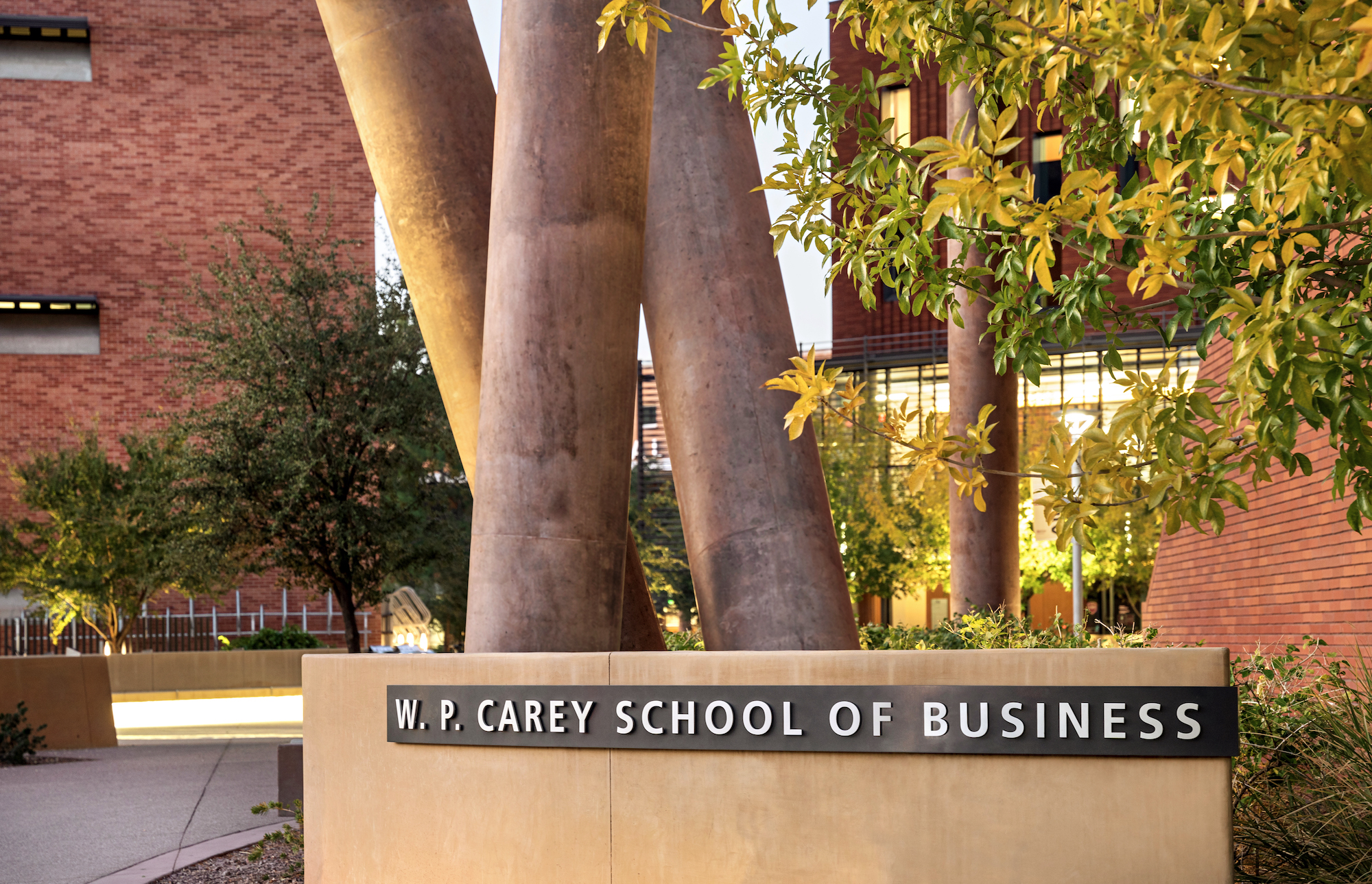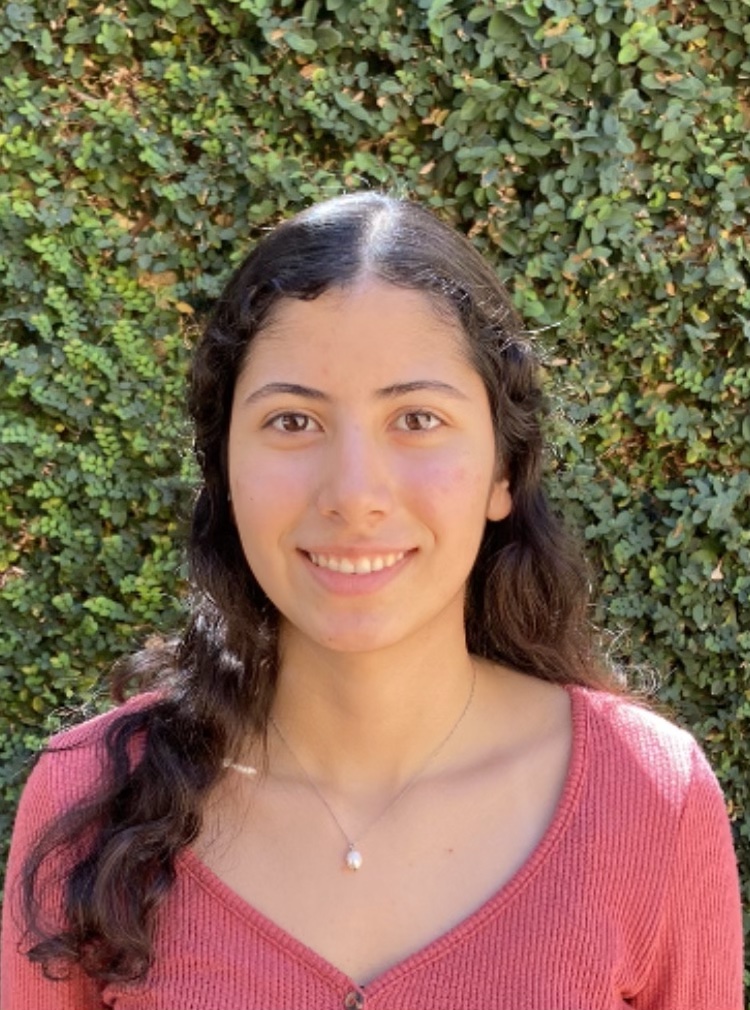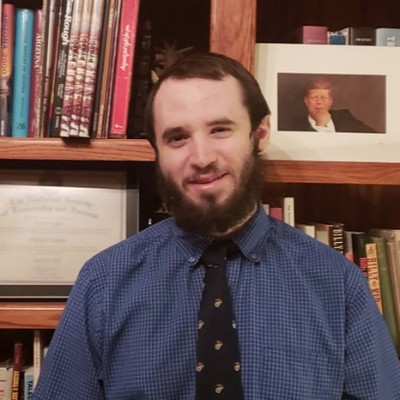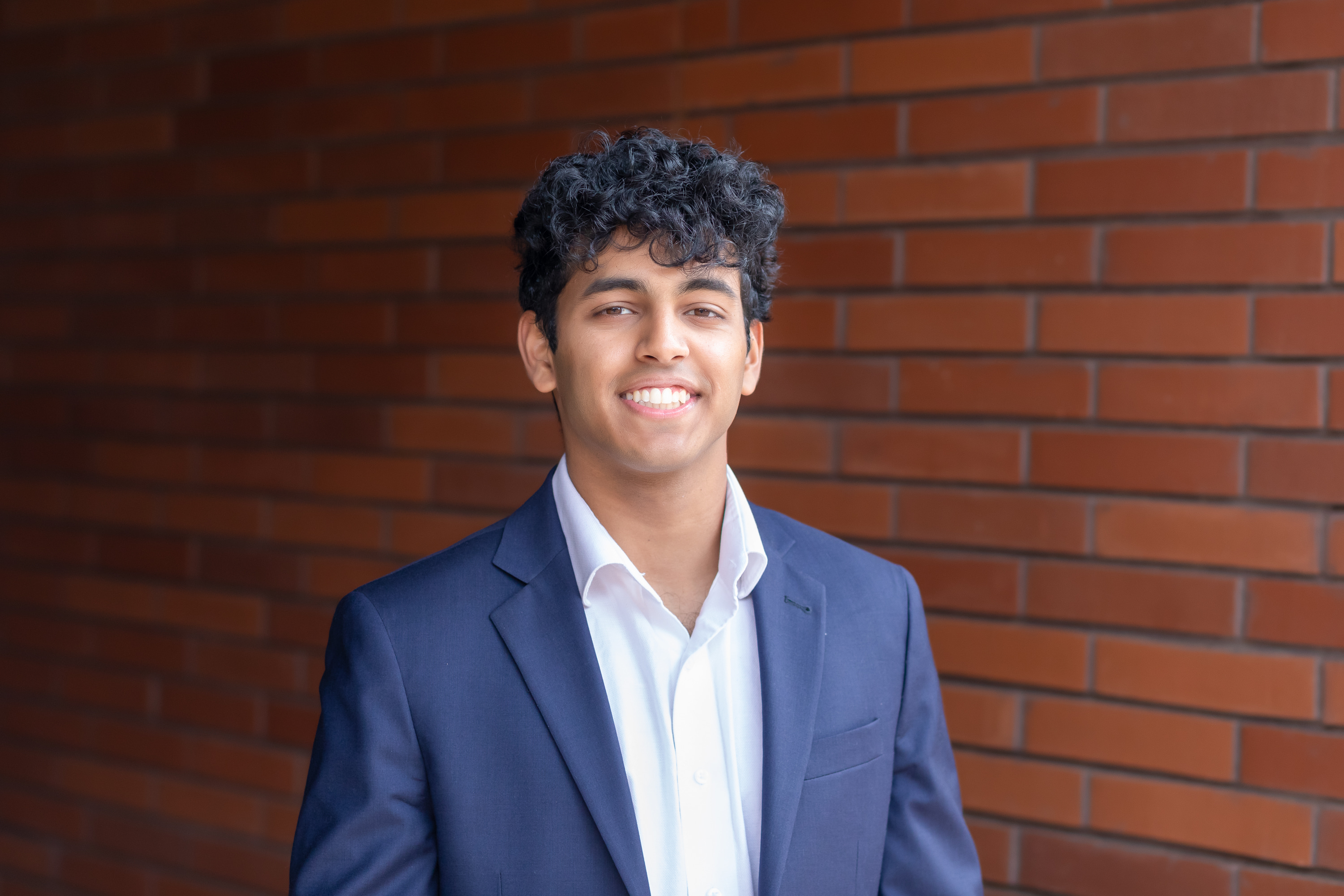
ASU economics students receive assistance, guidance from peer tutoring program
The W. P. Carey School of Business is proud to name the Fall 2023 Undergraduate Economics Instructional Scholars (UEIS) — current economics students who have been nominated to serve as tutors for 300-level and 400-level courses.
The Department of Economics at the W. P. Carey School of Business is proud to name the Fall 2023 Undergraduate Economics Instructional Scholars (UEIS). These are current economics students who have been nominated by professors to serve as tutors for that faculty member’s 300-level and 400-level courses.
Delivering tutoring services online and on campus, the UEIS program provides economics students with consistent access to student leaders who have already excelled in their courses. Students selected as scholars receive a unique opportunity to mentor fellow students while being mentored by an economics professor.
Meet the Fall 2023 scholars

Rachel Etebari
Question: How did you end up in economics?
Answer: I chose to dual major in economics because I took a macroeconomics class in high school, and I enjoyed the material. In college, I decided that I would take a few more classes to see if an economics major was something that I wanted to add. The upper-division economics courses that I took were engaging and cemented my decision to delve deeper into the subject.
Q: What do you like most about economics so far in your academic career?
A: I love the versatility of economics. It’s a field that can be applied to practically anything – from supply and demand, government policies, the healthcare system, as well as individuals’ behavior and decisions, just to name a few.
Q: What are your future career aspirations?
A: I am a premed student, so my career goal is to become a physician. I hope to incorporate my knowledge of economics in my medical career.

Noah Ruiz
Q: How did you end up in economics?
A: My path to economics is quite different than most. Initially, I did not like the subject at all and thought it wasn’t very interesting or useful. High school did not do the subject justice, and it wasn’t until college when I took Introductory Microeconomics that I realized I enjoyed the subject. After taking Principles of Microeconomics, I enrolled in Intermediate Microeconomics and took Econometrics the following semester. From then, I was hooked and decided to switch my major to economics.
Q: What do you like most about economics so far in your academic career?
A: I enjoy economics because you get a good dose of both theory and application. One moment, you may be deriving an economic model from basic assumptions, and the next you might be writing code to estimate the same model from real world data. The bridge between theory and real-world data is what I truly enjoy about the field.
Q: What are your future career aspirations?
A: For my post-grad plans, I’ve recently accepted a full-time job offer at J.P. Morgan in Palo Alto, California, where I’ll be working as a data scientist with a focus on large language models and knowledge graphs. In addition, I plan on applying to some master’s programs in statistics that, if admitted, I can pursue while working. Despite this, I’m still open to different opportunities, but I want to get a few years of experience working in the industry to see if I enjoy it or not. If not, we’ll see what happens, but I’ll most likely make some career pivot from there.

John Lloyd Bauer
Q: How did you end up in economics?
A: Initially, my perception of economics was limited to money management. However, during high school, I discovered that economics is a scientific exploration of decision-making. It was only after moving to the United States that I grasped the profound impact of this field on daily life. Economic theories, such as supply and demand, underpin business growth forecasts and consumer choices. Economics equips us to optimize our resources effectively.
Q: What do you like most about economics so far in your academic career?
A: What I find most captivating about economics in my academic journey is the interactive nature of the classes. Professors employ real-world instances to connect current economic events with classroom discussions. For instance, in courses like ECN 315 Money & Banking, we analyze potential causes of present inflation and compare them to historical occurrences. Exploring international economics in ECN 438 International Monetary Economics provides a fresh perspective on global economies and their unexpected behaviors. These engaging courses enhance our comprehension of the world around us.
Q: What are your future career aspirations?
A: My career aspiration centers around a research-oriented path, either within the public or private sector. My priority right now is to gain experience in the field through research. From there, I’ll evaluate the possibility of pursuing a graduate degree in a similar field based on my research exposure.

Ryan Logas
Q: How did you end up in economics?
A: My first bachelor’s degree was corporate accounting. I thought a minor in economics would complement my accounting degree well. I started off by taking microeconomics and macroeconomics at community college, then transferred to ASU. Economics was just something that interested me.
Q: What do you like most about economics so far in your academic career?
A: I would always hear about the state of the economy on the news and could never really understand what was being said. Now with the understanding of economics that I have gained from my courses, I have a good understanding of the state of the economy, such as recessions and gas prices and CPI.
As soon as I found out that calculus is used in economics, it made me want to add a minor to my degree, because I have always loved math and seeing it applied to something practical like economics piqued my interest. When learning calculus in a math class, you don’t see much practical application.
I began to love econometrics when I was introduced to regression analysis in ECN 410 Applied Regression Analysis and Forecasting. I absolutely loved that class because I have a strong interest in programming, data analysis, and statistics, and this course had it all. Now running regressions is one of my favorite things to do. I absolutely love it! In fact, I gained so much knowledge from that class that I am now tutoring someone in regression analysis on the side.
Q: What are your future career aspirations?
A: I would say that my future career aspiration would be a career related to econometrics, one where I could build and run regression models all day long!

Raghav Warrier
Bio: I began college as a computer science major, but I quickly realized I wasn’t interested in the software development route. Then I learned about the world of economic research and never looked back. I am currently interested in public economics, development economics, and economic policy. Upon graduation, I hope to pursue a PhD in economics from a top program and enter academia afterward.

Kalli Jorgensen
Bio: The information taught in my first microeconomics class felt as though my brain was put on the whiteboard for everyone to see. That’s how well economics aligns with my thoughts. I love how economics creates a new perspective on how to view the world using math, graphs, and logic. I’m still working on narrowing down which future career I would like to start with.

Linus Ros
Bio: I grew up reading a lot of news and generally having a lot of questions about how the world works. That interest grew and grew until I knew that I wanted to study something that would explain systems of human behavior. I love economics because it’s a fascinating puzzle. Sometimes seemingly complicated problems have a simple solution, and vice versa. I intend on pursuing a graduate degree in economics and thereafter attending law school.
Latest news
- Pop culture is key to effective teaching
How a management and entrepreneurship professor uses Ted Lasso and other pop-culture touchstones…
- Artificial intelligence in business master's degree helps Nathan Merriman combine business strategy with technology
Nathan Merriman (MS-AIB '25) had been working in business for a few years when he learned about…
- How the Executive MBA empowered Scott Gates to be a mission-driven leader
Scott Gates (BS Marketing '04, Executive MBA '15) had a very positive experience during his…